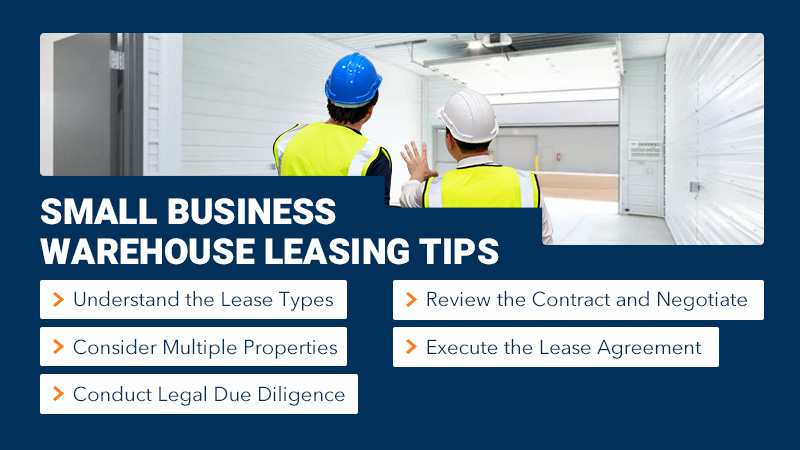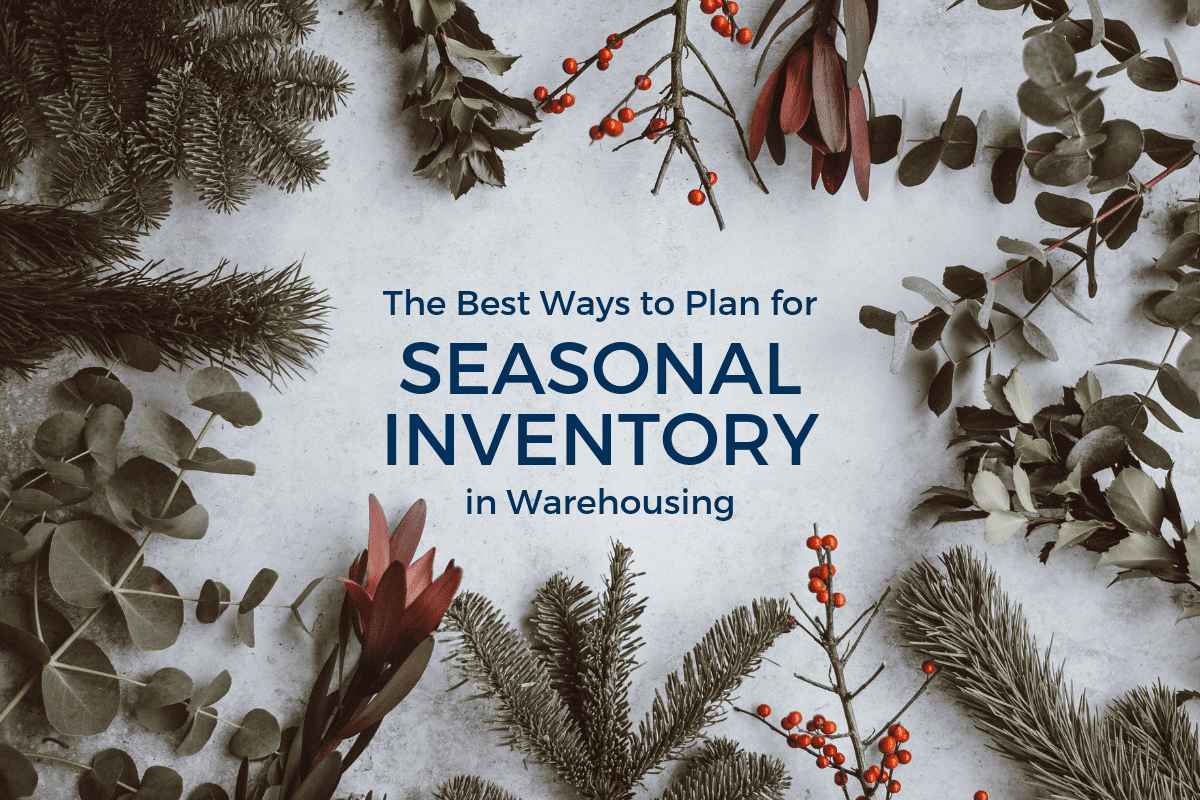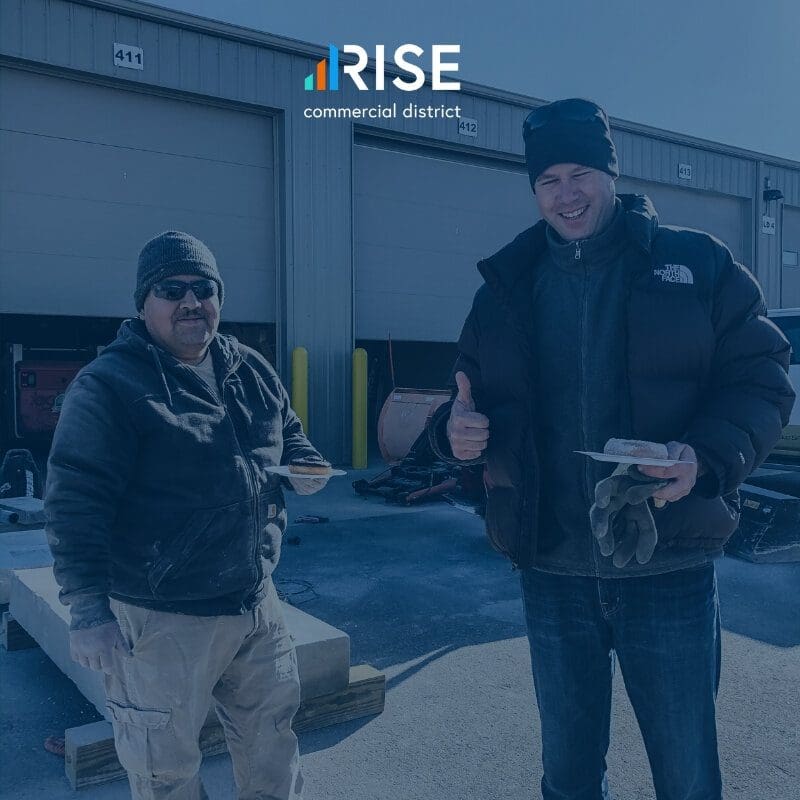Finding suitable warehouse space is crucial for small businesses aiming to scale and streamline operations. By learning the best practices, business owners can navigate the complexities of leasing, ensuring they get the best value for their money.
This guide offers some warehouse rental tips for your small business, including the vital considerations and steps for leasing. RISE Commercial District has multiple warehousing facilities designed to meet various business needs. Book a tour today, or read on to learn more!
Small Business Warehouse Rental Tips
There are a few things to consider when renting a warehouse for your business. Below are four helpful tips:
1. Assess Your Needs
Outline the specific requirements based on your business needs. What is the purpose of renting the warehouse? How long do you need the space? What is the ideal size? Will your operations require you to prioritize certain factors?
For example, do you need a space proximate to suppliers, customers and transportation hubs? Answering questions like these will help you make an informed decision.
2. Understand Costs
Learn the costs involved in renting a warehouse before signing a lease. The specifics vary depending on the lease type but generally include the following:
- Rent: Your rent is based on various factors, including location and size.
- Utilities: These are ongoing expenses covering electricity, water, heating, and other similar costs.
- Maintenance: Some rental agreements require you to cover maintenance and repair expenses.
- Insurance: The rental agreement may require you to secure insurance, such as property and public liability insurance.
- Taxes: You may be required to pay state and federal taxes annually.
3. Evaluate Accessibility
Most people overlook accessibility when renting commercial properties like warehouses, but it is crucial. First, determine whether the property is accessible to persons with disabilities. Second, the facility must have adequate parking for employees and customers and sufficient truck-loading and unloading areas. Finally, evaluate traffic patterns in the area to learn whether heavy congestion will potentially affect your operations. You need a space that is convenient and practical.
4. Inspect the Space
Visit and examine the warehouse to determine whether it suits your needs, and look out for the following:
- Condition: Check the structures, such as the floor, roof and walls, for signs of damage or wear.
- Security: Evaluate the security measures, such as alarms, cameras and gated access.
- Amenities: Check whether the property has amenities like bathrooms, office spaces, and internet connectivity.
- Compliance: Ensure the warehouse complies with the relevant regulations, such as zoning, environmental, safety and accessibility laws.
Small Business Warehouse Leasing Tips
Leasing a warehouse can be straightforward when you have the right information. Here is a step-by-step guide:

1. Understand the Lease Types
There are different types of commercial lease agreements, each with unique features. Here are key examples:
- Gross lease: The landlord pays the operating expenses, including taxes, insurance and maintenance.
- Net lease: There are three types of net leases — single, double and triple. The landlord allocates costs to the tenant depending on the type.
- Modified gross lease: This type compromises between gross and net leases, where parties share responsibilities.
- Percentage lease: The tenant pays a base rent plus a percentage of monthly sales.
2. Consider Multiple Properties
Compare multiple properties and choose the option that best suits your needs. Consider factors like the costs, facilities and growth potential and create a list detailing the pros and cons of each. You can conduct a market analysis to gain better insight.
Once you’ve identified the preferred option, send a letter of intent (LOI) specifying the proposed terms, duration and rent amount. This step typically commences the lease process.
3. Conduct Legal Due Diligence
Legal due diligence allows you to identify risks and develop solutions to avoid, remove or resolve them. For example, it can help you uncover potential title issues, existing liabilities or compliance with regulations. This assessment can be technical. Thus, it would be advantageous to consult a professional for assistance.
4. Review the Contract and Negotiate
The landlord usually prepares the lease agreement, and it is essential to read it carefully. Take notes of the vital terms, such as the rent amount, duration, termination, renewal and obligations.
Be prepared to negotiate terms, ensuring the proposals are fair to both parties. The key is making a flexible arrangement that suits your commercial goals.
5. Execute the Lease Agreement
Sign the lease agreement when you’re satisfied with the terms. Ensure the landlord or their duly authorized agent also signs their portion. If you must perform contractual or statutory obligations, such as making a deposit or presenting an insurance certificate, do that as soon as possible.
Small Business Warehouse Rental Best Practices
Besides the financial and legal considerations, there are best practices to consider The following tips can optimize your renting experience:
1. Maintain Good Communication
Once you’ve rented the warehouse, maintain open lines of communication with your landlord. Discuss any concerns or issues that arise regularly to establish a good relationship.
2. Keep Detailed Records
Document all transactions, communications and agreements related to your warehouse rental. This strategy can protect you during disputes and help you track your expenses.
3. Prioritize Safety and Security
Ensure that your warehouse complies with safety regulations. Conduct regular safety audits and implement measures to mitigate related risks. Also, ensure the property is well-protected with gated access and security systems.
4. Plan for Contingencies
Develop contingency plans for potential disruptions, such as unexpected growth impacting the use of the space. Preparation can help you adapt quickly to changing circumstances.
How RISE Commercial District Can Help
RISE Commercial District provides opportunities and options for small business owners looking to rent warehouses. We have properties in several locations, including Indiana, Ohio, Minnesota and Wisconsin. We aim to make your renting experience smooth. Our facilities include warehouses, storage units, offices and flex spaces.
Our trained professionals will assess your needs and help you find the best solution. We provide free Wi-Fi, conference rooms, restrooms and forklifts to support your shipping and receiving needs. Our industrial warehouse spaces are affordable and accessible. We also educate businesses on issues of finance, marketing and more. Most importantly, we have excellent customer relations and strive to exceed expectations.

Small Business Warehouse Rentals from RISE Commercial District
Small businesses often need additional space to accommodate operations. To make an informed decision, assessing your needs and choosing the option that potentially generates the highest return on investment is essential.
RISE Commercial District can streamline the warehouse rental process, providing you with the necessary facilities and information. We serve small to large businesses and have the resources to accommodate your demands.
Our team is ready to help. Contact us today!



